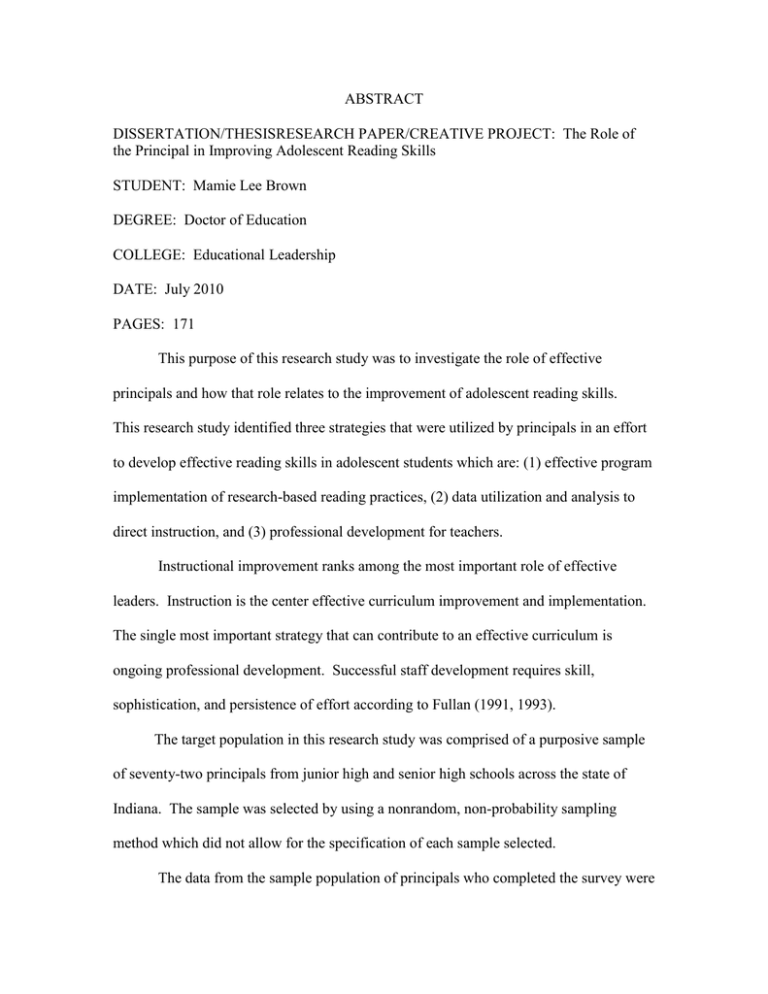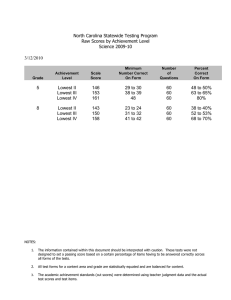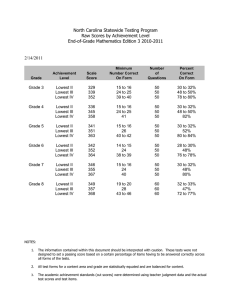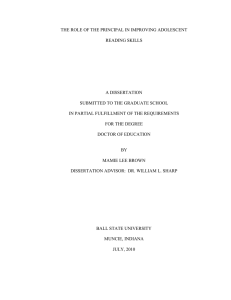ABSTRACT DISSERTATION/THESISRESEARCH PAPER/CREATIVE PROJECT: The Role of
advertisement

ABSTRACT DISSERTATION/THESISRESEARCH PAPER/CREATIVE PROJECT: The Role of the Principal in Improving Adolescent Reading Skills STUDENT: Mamie Lee Brown DEGREE: Doctor of Education COLLEGE: Educational Leadership DATE: July 2010 PAGES: 171 This purpose of this research study was to investigate the role of effective principals and how that role relates to the improvement of adolescent reading skills. This research study identified three strategies that were utilized by principals in an effort to develop effective reading skills in adolescent students which are: (1) effective program implementation of research-based reading practices, (2) data utilization and analysis to direct instruction, and (3) professional development for teachers. Instructional improvement ranks among the most important role of effective leaders. Instruction is the center effective curriculum improvement and implementation. The single most important strategy that can contribute to an effective curriculum is ongoing professional development. Successful staff development requires skill, sophistication, and persistence of effort according to Fullan (1991, 1993). The target population in this research study was comprised of a purposive sample of seventy-two principals from junior high and senior high schools across the state of Indiana. The sample was selected by using a nonrandom, non-probability sampling method which did not allow for the specification of each sample selected. The data from the sample population of principals who completed the survey were used to report, correlate, and analyze data collected from the Education Survey and the pre-Lexile reading scores and post- Lexile reading scores. A review of all collected data indicated the following: Schools that utilize a scientifically based reading program were more likely to submit scores than those schools that utilize a reading program embedded in the subject content areas. The t test data reflected a t score of 3.121 which was sufficient to reject the null hypothesis - The principal’s role has no effect on the improvement of adolescent reading skills. In rejecting the null hypothesis, it is reasonable to accept the hypothesis that the statistical difference between the pre- and post- Lexile scores is related to the role of the principal. There is a statistical significance which would indicate that the relationship between the staff and the principal is important in predicting effective reading instruction for adolescents at the high school and/or middle high school level. Based on the data taken from the Education Survey and the growth between preand post- Lexile scores, there is an indication that as effective curriculum leadership increases the predictive value of effective reading instruction decreases. There is a statistical significance between how principal rated themselves on providing opportunities for teachers’ professional development and the growth between the pre- and post- Lexile reading scores.



